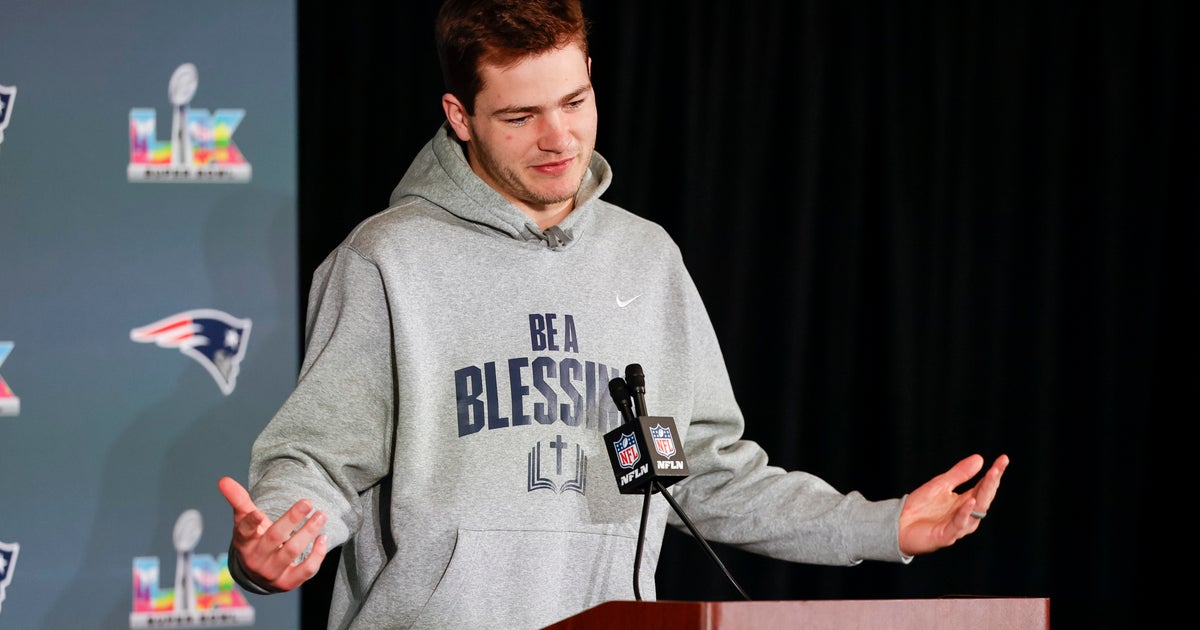What Changes Look Like For The BCS
(AP) - College football's newest way to crown a national champion should become a lot clearer in south Florida on Wednesday and Thursday.
The conference commissioners in charge of the Bowl Championship Series will meet for the fourth time this year, trying to sort out the future of the BCS. They are focusing on four options, though within in each plan there are myriad details to be worked.
A memo, first reported by USA Today and obtained by The Associated Press, identified much of what's on the table.
A final decision isn't expected to come from this round of meetings, but BCS Executive Director Bill Hancock has said he'd like the conference commissioners and Notre Dame's athletic director to come out of them with extensive plans for the leagues to chew on over the next month or so.
A playoff is the best bet, but more detailed plans also allow for more reasons to object.
We break down the possibilities and give an educated guess about the chances of each being implemented.
___
BCS With Adjustments:
What is it?: Basically, more of the same with tweaks. No more automatic bids. No more two teams per conference limit. More flexibility for the bowls to swap teams to create better matchups.
Pros: Three SEC teams in the big games.
Cons: Three SEC teams in the big games.
Chance it is chosen: It seems unlikely that the powers that be would tantalize fans with talk of expanding to a format that allows more teams the chance to enter the postseason with a shot to win the national title, and then pull the chair right out from under them. Plus, they now the format has gone stale and needs a makeover to boost the bottom line. But if they can't agree on how to make big changes, this would be the fallback.
Original "Plus One"
What is it?: Consider this the retro option. Instead of setting the championship game matchup after the regular season and conference title games are over in early December, the title game teams would be selected after the bowls are played. But it's not No. 1 vs. No. 4 and No. 2 vs. No. 3 in the bowls. Conceivably, all the major bowls could have a team in national title contention participating.
Pros: The bowls are still important, and if you liked the old days when No. 1 could be playing in the Orange Bowl, while No. 2 was in the Cotton and No. 3 was in the Rose, this is for you. It also eliminates those midweek BCS games that often have no buzz.
Cons: Hard to sell this as progress.
Chance it is chosen: Outside chance. It allows the Big Ten and Pac-12 to keep the Rose Bowl as their private domain and injects championship implications into more postseason games, clearing a stumbling block even as it leaves another one in place by failing to create a clear playoff.
Four-team Event
What is it?: What we've all been waiting for, a playoff. A small one. The top four teams are seeded. No. 1 plays No. 4 while No. 2 plays No. 3. A week later, the winners play for the national title. The conference commissioners want the season to end closer to New Year's Day than it has been, so semis would likely be a few days before the calendar flips.
But there's a catch. Actually, there are several catches, most importantly where to play the games.
The Big Ten has been pushing home sites, which sounds cool — especially to Big Ten Commissioner Jim Delany — until you start doing logistics on holding a huge sporting event in Manhattan, Kan., or Pullman, Wash.
Also, the prospect of playing outdoors in, say, Madison, Wis., in late December, is not something SEC Commissioner Mike Slive's members will like.
The games could be played in the traditional bowls, rotating around the way the BCS does now. Or the three new games could be awarded to the highest bidders and be played separate from the bowls. Or possibly some combination of those two. But will fans travel to two neutral site games?
There's also been the suggestion of picking the four highest-ranked conference champions.
That would raise the stakes on the regular season and league championship games — essentially turning championship weekend into the first round of the playoffs — and take some of the subjectivity out of selecting the teams. However, a possible playoff field featuring Nos. 1, 3, 5, and 7 is going to be tough to sell many fans.
When Hancock talks about coming up with something more specific, he's talking mostly about this format.
Pros: It's a playoff.
Cons: No matter how they configure it, people will complain that they screwed it up.
Chance it is chosen: If there is a leader among the formats, and Hancock insists there is not, this is it.
Four Teams Plus
What is it?: The four highest ranked teams meet in the semis, but the Big Ten and Pac-12 always play in the Rose Bowl. This could produce the oddity of three semifinals.
Pros: Delany and Pac-12 Commissioner Larry Scott get what they want.
Con: Three semifinals?
Chance it is chose: All you need to know is this quote from Slive: "It's not one of my favorites. What we're trying to do is simplify in many ways. I don't think that adds to the simplification of the postseason." Good luck getting that through.
(Copyright 2012 The Associated Press. All Rights Reserved. This material may not be published, broadcast, rewritten or redistributed.)







